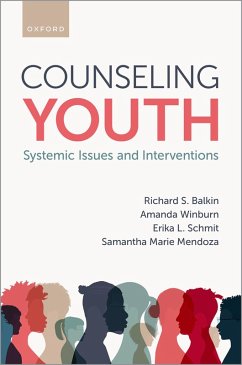
Unconditional Care in Context (eBook, PDF)
Engaging with Ecological Adversity

PAYBACK Punkte
9 °P sammeln!
Unconditional Care in Context reclaims problems of ecological adversity --poverty, racism, housing instability, community disadvantage, food insecurity, and social disconnection -- as central to understanding and working with system-involved children and families. Child-serving systems typically define the struggles of these children and their families through a disorder lens of psychiatric diagnosis and family dysfunction. The interconnected burdens of financial stress, exclusion, disrupted parenting, and social isolation that regularly confront these families are often neglected or minimized...
Unconditional Care in Context reclaims problems of ecological adversity --poverty, racism, housing instability, community disadvantage, food insecurity, and social disconnection -- as central to understanding and working with system-involved children and families. Child-serving systems typically define the struggles of these children and their families through a disorder lens of psychiatric diagnosis and family dysfunction. The interconnected burdens of financial stress, exclusion, disrupted parenting, and social isolation that regularly confront these families are often neglected or minimized. Without attention to these issues, intervention is limited to reactive strategies that require children and families to fail before they can receive support. Unconditional Care in Context reviews key sources of adversity and the efforts to undertake "macro level" intervention: system reform, program innovation and policy initiatives that address key sources of ecological adversity. These strategies, at the level of school campuses, neighborhoods, and child-serving systems themselves, often provide universal services that make prevention possible. When these supports are provided to families in a timely way children may not need treatment and parents are spared intrusive system interventions. Unconditional Care in Context also offers a roadmap for addressing issues of context and ecological adversity when individual work with children and families is necessary or is pursued by parents. This book is a call for the field of human service to reconnect with the concrete realities of families' real circumstances and enlarge its focus to include practices that are truly ecologically-informed.
Dieser Download kann aus rechtlichen Gründen nur mit Rechnungsadresse in A, B, BG, CY, CZ, D, DK, EW, E, FIN, F, GR, HR, H, IRL, I, LT, L, LR, M, NL, PL, P, R, S, SLO, SK ausgeliefert werden.













